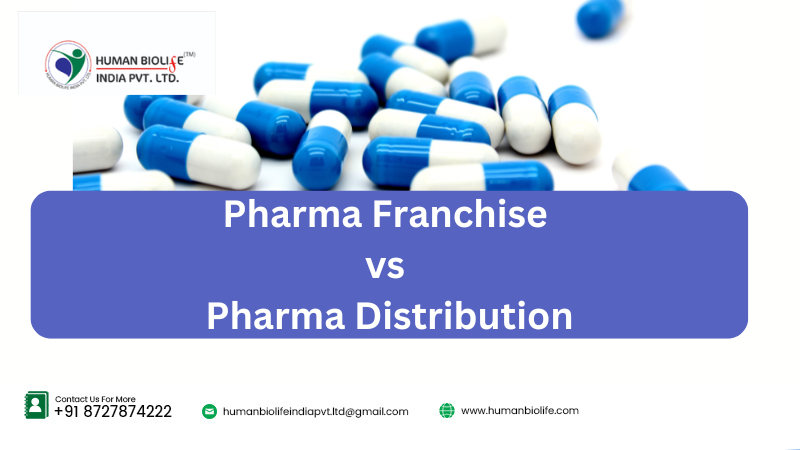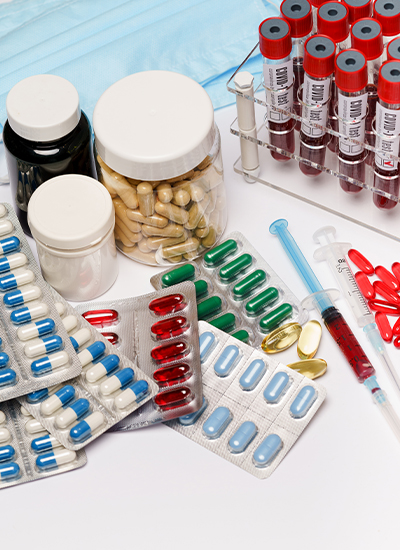
Pharma Franchise vs Pharma Distribution – Which is Better? The pharma industry is growing very fast in India, and people have plenty of options to start a business. The two top options are PCD pharma franchise and pharma distribution. They are seen to have the same meanings, but they are very different from each other when it comes to investment, working style, and expansion. Most newcomers are confused about which type is best for them since they both have pros and cons.
A PCD pharma franchise generally works in a limited area with exclusive rights as a franchise. A pharma distribution is usually bigger, with a broader reach and more products. Knowing these differences can also help you make a smarter decision. We will discuss the PCD pharma franchise and pharma distribution in simple terminology so you can determine what is best suited to your needs.
In the pharmaceutical industry, there are two primary franchise models: pharmacy franchises and pharma distributors.
A PCD (Propaganda Cum Distribution) franchise operates in a certain territory/region, where the franchise can only sell the specific company's drugs at the specified address. A pharma distributor enables a person/business firm to sell additional drugs all under one brand name. Each franchise will have its pros as well as cons. A lot of people prefer these to starting their own independent business because it is less risky and comes with an already established product that is recognized.
A business organization called a PCD (Propaganda cum Distribution) Franchise is where a pharmaceutical company designates distributors/individuals as PCD partners who sell and promote products in a specific territory/region. These partners operate independently and are responsible for promoting the products in the company's name. They promote and sell to healthcare professionals, pharmacy shops, hospitals, and other potential customers.
The PCD partners purchase the products from the organization at wholesale prices and then sell them. The pharmaceutical organization provides the PCD partners with advertising materials, product knowledge, and product support to assist in their marketing efforts. PCD partners, however, are independent organizations for greater flexibility of operation.
A pharmaceutical company provides a pharma franchise so that an individual or group can sell and market its products under its brand name in a specified territory. A franchisee or pharma franchise partner works as a business partner with the original company. Their responsibilities include investment in buildings, stock, and advertising to sell their products.
The franchisee buys the product from the parent company at a cheaper price and sells it into the market at a profit. The parent company provides the franchisee with a marketing brochure, training, as well as product information. The parent company monitors the quality of the product sold, manages branding, and supervises the overall business operations.
2026 © Human Biolife India PVT. LTD.

